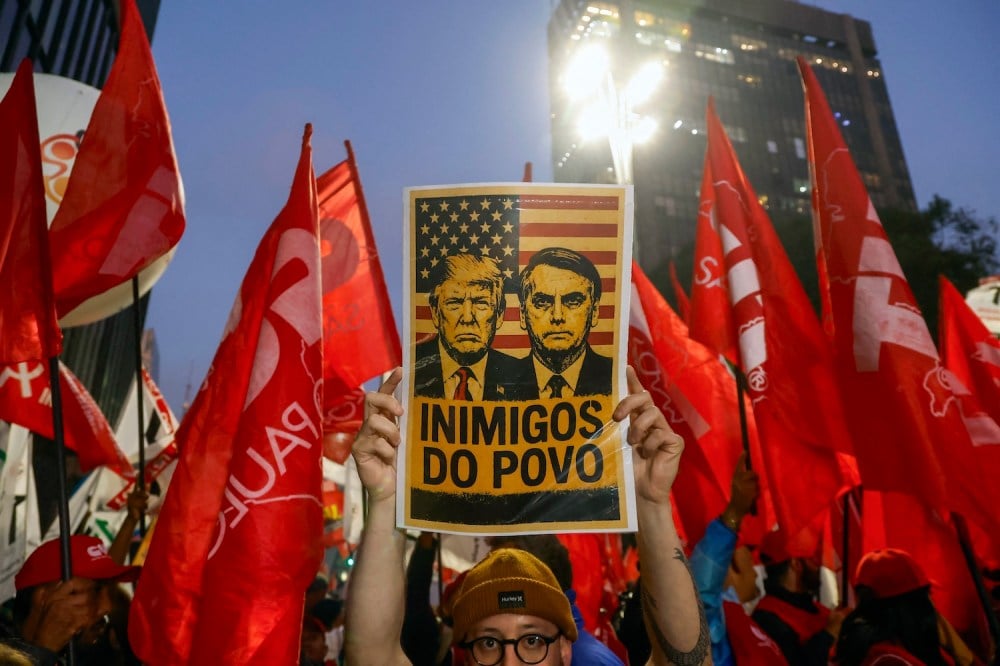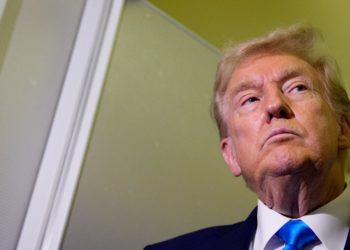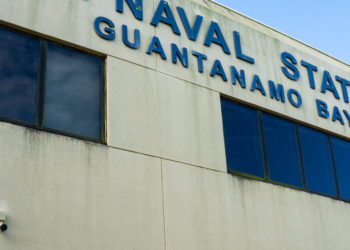The first time that U.S. President Donald Trump’s administration carried out a deadly aerial strike against a high-speed boat allegedly crewed by a drug cartel as it headed north into international waters from Venezuela, one could still speak of the operation as an isolated incident.
Critics, including some in the U.S. Congress, denounced the attack as an extralegal execution. Others complained that neither the White House nor the Defense Department had bothered to brief members of the House or Senate intelligence committees or provide any evidence that the victims were ferrying narcotics to the United States, let alone that they were terrorists or enemies of the country in any conventional military sense.
With a fresh second attack on a boat out of Venezuela this week, though, the Trump administration showed not only that it was unbothered by this brief flurry of objections, but also that these strikes were not mere incidents at all. Taken together with other disturbing developments in U.S. relations with Latin America, what we are seeing instead is confirmation that Trump is ushering in a dramatic new era in the geopolitics of the Western Hemisphere.
Throughout his time in office, Trump has placed great store in the notion of appearing strong. It is one of his favorite words and comes up again and again in his rhetoric. Now, early in his second term, it is becoming clear that Trump is seeking to usher in nothing less than the era of the strongman.
What we are witnessing is a drive with two faces. On the one hand, Trump is behaving toward Latin American countries in the classic manner of the strongman himself—the executive who takes sweeping and unilateral action, refusing to bother with the procedural requirements or niceties of republican democracy. On the other hand, through many of his actions, Trump is siding with and thereby promoting strongman politics in a continent with a dismal and not terribly remote history of this kind of rule.
Throughout Latin America, this kind of authoritarianism is often called caudillismo, with variants seen through periods of personalized dictatorship in the Caribbean, Mexico, and South America in the 20th century. It is too soon to speak of its revival, but it is not too early to detect signs that Trump longs for this. Just as he seems to revere Russian President Vladimir Putin, Hungarian Prime Minister Viktor Orban, and even Chinese President Xi Jinping for the scope of their power, Trump has favored Latin American leaders with much the same style or ambition.
The first clear example of this came early in Trump’s second term, when he forged close ties with Nayib Bukele, the far-right Salvadoran president who rules his country tightly, through a combination of youthful energy, charisma, and expeditive justice. Bukele has built a vast prison infrastructure in his small country—not only to lock up presumed members of violent gangs but also to intimidate and put away critics. What sealed his relationship with Trump was Bukele’s willingness to accept third-country deportees from the United States, whom he agreed to incarcerate for a fee.
Like the execution at sea of presumed drug traffickers from Venezuela, Trump’s expeditive deportation policies raise a host of legal objections, which have slowed this effort down without ever halting it. For now, though, these efforts have earned Bukele, to El Salvador’s detriment, his country’ exemption from U.S. scrutiny and human rights reporting.
Trump’s other favorite leaders in Latin America also mostly fall on the authoritarian spectrum. Argentine President Javier Milei, for instance, hasn’t become a dictator, but he implements far-right economic policies and governs in a populist style that resonates with his country’s Peronist past. Trump has often praised Milei, who has eagerly returned the favor, frequently invoking Trump and even showing up at rallies for him in the United States.
Given the U.S. president’s own history of rejecting certified and judicially validated election results, it would not be frivolous of Argentines to worry about the possibility that the United States under Trump could throw its weight behind electoral shenanigans in their country in the future. In fact, a disturbing example of Trump inching toward this exists right next door.
Trump has never made a secret of his support for Brazil’s far-right former president, Jair Bolsonaro. During the failed reelection campaign that pitted Bolsonaro against now-President Luiz Inácio Lula da Silva, Trump repeatedly made clear his preference for Bolsonaro. If Trump’s support had stopped there, then this would have merely amounted to an unusual but relatively mild infraction against the long-standing diplomatic practice of avoiding overt interference in other countries’ electoral matters.
Yet since Lula’s victory, Trump has marshalled any number of pretexts to inflict harm on Brazil’s leftist president and thereby, in effect, punish his country for electing him. One of the aims of Trump’s pressure, which includes highly punitive tariffs on Brazilian exports, was to spare Bolsonaro punishment for plotting to overthrow the government—a charge that he was recently found guilty of in court.
If most Latin American countries are relatively small, Brazil and Mexico—another nation that has stood its ground in dealing with Trump’s hyperassertive attitude toward the region—have the kind of heft that give them crucial ballast in resisting U.S. impositions.
In an op-ed published on Sept. 14 in the New York Times, Lula was unusually forthright about his determination to safeguard Brazilian freedom and sovereignty from U.S. interference in “seek[ing] impunity” for Bolsonaro:
I am proud of the Brazilian Supreme Court for its historic decision on Thursday, which safeguards our institutions and the democratic rule of law. This was not a “witch hunt.” The judgment was the result of proceedings carried out in accordance with Brazil’s 1988 Constitution, enacted after two decades of struggle against a military dictatorship. It followed months of investigations that uncovered plans to assassinate me, the vice president and a Supreme Court justice. Authorities also discovered a draft decree that would have effectively annulled the 2022 election results.
There are many dangers inherent in the Trump administration’s enamored attitude toward authoritarian rule in Latin America and elsewhere. Let’s not pretend, though, that the United States has not lavished political and covert support, including some of the muscle behind violent coups, to dictatorships in the past. In fact, that was a vital feature of caudillismo throughout much of its dark history. Dictatorships in places as diverse as Haiti, the Dominican Republic, Guatemala, and Chile may never have arisen and certainly would have had a harder time thriving were it not for Washington’s support during the Cold War.
Many things separate that era from now, but one that is too easily forgotten is that even with its deeply mixed record, the United States often gave at least rhetorical support for the ideal of democracy and eventually found a way to speak up on behalf of human rights in the region, even if weakly or intermittently. This is where the new era stands apart. The U.S. State Department has gutted its human rights reporting, and democracy has been dropped from Washington’s diplomatic phrasebook. Policy nowadays has become personalized. What matters now is who Trump likes, and his fondness for personalized regimes run by authoritarians stands out clearly.
One theme recurs often in Trump’s rhetoric: a Monroe Doctrine-like obsession with competing with China and stopping it from gaining ever more ground in the United States’ notional backyard. Few in the administration, though, seem to have paused to ponder how Latin America feels about this preoccupation at a time of seemingly value-free U.S. foreign policy.
Democracy could be aspired to even in the age of U.S. support for caudillos. It wasn’t crazy, in other words, to think that Washington might reawaken to the ultimate promise of its own system and recall its democratic values in dealing with others. But in our new era, the only things that are starting to differentiate the United States and China, besides sheer distance, are wealth and power.
The post Trump Is Ushering in the Era of the Strongman appeared first on Foreign Policy.




